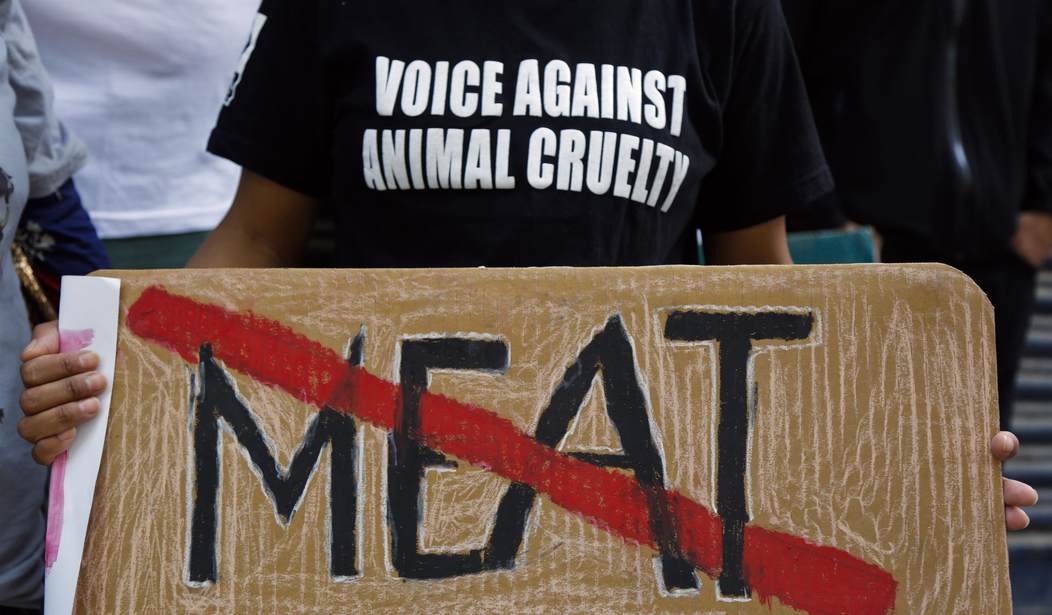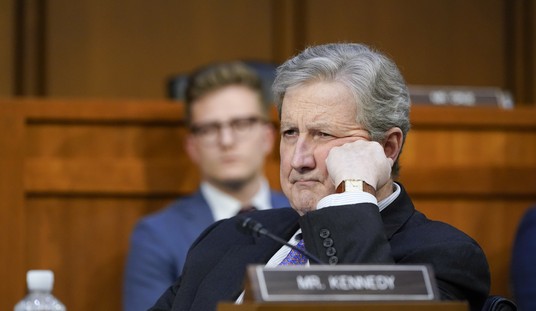Animal “Rights” Are Not.
Earlier today (Thursday), my colleague Jeff Charles wrote an excellent piece on the city of Ojai, California, a location not generally known as elephant habitat, passing an ordinance that they claim grants rights to elephants. The new law states, specifically, that elephants have the right to “bodily liberty.” Earlier this year the nation of Ecuador, citing some nebulously defined “rights of nature,” claimed to have granted rights to certain animals within that nation.
None of these actions, or other similar proposals, in any way grant or recognize any animal “rights.” The legal actions passed affect only humans, and the penalties resulting from infractions affect only humans; they can no more be said to have recognized any animal's rights than claiming that a law against cutting a tree in a public park can be said to recognize the tree’s rights.
To break this down, we need to examine the concept of rights, how they are tied to moral agency, and how they cannot apply to animals – who are not moral agents and are not capable of moral agency.
What Is a Right?
A "right" is a moral claim or potential claim that one party may exercise against another. Rights are contingent on moral agency, not species membership. Such a claim can only be exercised by, or on behalf of, one moral agent against another. What makes a moral agent?
One good definition is derived from Immanuel Kant's emphasis on the universal human possession of a uniquely moral will and the autonomy the use of such will entails. (Kant, one might note, was a strong advocate of constitutional republics as the governing system best suited to peace and prosperity.) Humans, and only humans, confront choices that are purely moral. Humans, and only humans, lay down moral laws, for others and for themselves. Humans, and only humans, are self-legislative and morally autonomous. That in and of itself entails moral agency. What humans possess, as a matter of human nature, no animal can be said to have at all. I’ll discuss that in detail in a moment.
First, what defines a right? Rights have meaning only among humans, who can and do make moral claims against one another. Rights are a uniquely human concept. In the case of the United States, many of those rights are recognized in our Constitution as freedoms we, as humans, have and with which the government is forbidden to interfere.
Animal rights advocates seek to extend to animals what they cannot have — rights — but the actual result of the achievement of the animal rights goal, by their own argument, would not only fail in that regard but would result in the stripping of rights from human beings.
Here's the problem. While animal rights advocates may claim that animals may benefit from the extension of some variation of the human concept of rights, the fact remains that the only results will affect humans, not animals. The policy changes made will only affect human society; the consequences imposed for infractions will only affect human behavior. A rabbit cannot make a moral claim against a wolf that would eat it for lunch, nor can a wolf claim it has a right to the rabbit. The animal rights agenda would not place that onus of responsibility on animals. It would not affect animal behavior in any way, and so it in no way extends moral agency to animals, which are incapable in any case of exercising that agency.
So, by their own definition, animal rights advocates exclude animals from the unique status of moral agency that is the sole province of humans, which automatically negates the argument that they are entitled to any extension of the socio-legal concept of "rights."
However, there's a darker side to the animal rights argument. Since animal rights advocates often favor a "case-by-case" assessment of moral agency and rights based on ability, the animal rights agenda carried to a logical extreme can only result in inhumane treatment of the mentally disabled, the handicapped, of the elderly. See “bioethicist” Peter Singer’s arguments for euthanasia of disabled human infants, for example. This is known as the “Argument From Marginal Cases,” and can only result in the inhuman treatment of any humans who are deemed "inferior" and "unworthy" by whatever arbitrary standard a hypothetical despot could dream up. And they'd have a moral ground for doing so; the animal rights agenda, after all, has already set the precedent. No human, not Peter Singer nor anyone else, has any moral case for making such a decision.
Moral Agency
Moral agency is the arbiter of rights, not species. However, moral agency as a workable principle can only be assigned based on kind; it can't justifiably be assigned on a case-by-case basis, as argued above. The capacities that enable moral agency are unique to humans as a body. While humans can be and are moral agents, no animals can be said to have that capacity. Once the precedent is set to make individual capacity or ability, or any other arbitrary attribute, a qualification for the assignation of rights, then you open Pandora’s box, the ultimate consequences of which stagger description.
At the heart of this issue is a matter of fundamental public policy. It is proponents of animal rights who are arguing the need for a vast and fundamental change in the very fabric of our society. It is proponents of animal rights who, in an age where billions of humans are denied the most basic human rights, wish to extend this very concept to non-human animals. Therefore, the burden lies on animal rights advocates to prove that human society would benefit in some measurable way by doing so. And it is only the benefit for human society that we need to consider, as it is only human society that you would affect. It is only humans upon which you would place the onus of responsibility. It is only humans that you would restrict in any behavioral, legal, or moral actions. The animal rights agenda would have no effect, moral, legal, or otherwise, on animal's interactions with humans or other animals. Indeed, the iteration of the animal rights agenda unwittingly recognizes the lack of moral capacity in animals, and this is a fundamental flaw.
Animal rights advocates can't discuss this on even ground; they are arguing against a status quo. The concept of animal rights and those who advocate for them seek to overturn a situation that is a fait accompli, and so animal rights advocates must prove an overwhelming benefit or compelling need exists to enact their agenda. That's the reality of public policy, and if you're not advocating animal rights as public policy, but instead purely as a semantic exercise, then why bother?
Animal rights advocates are fond of comparing human ownership of animals to slavery. That argument is a non-starter, again because of the issue of moral agency. Slavery is recognized as a great moral evil – this cannot be emphasized enough — precisely because of the unique human status of moral agency. The fact remains that human slaves are in any event moral agents, and even in slave-holding societies are recognized as having the capacity to make moral claims against other humans, although that ability may be immorally curtailed by enslavement. In some slave-holding societies, slaves were allowed to marry and allowed to conduct limited trade. In others, such as ancient Rome, they were entitled to work towards earning their freedom. Indeed, in some societies, people were even allowed to enter voluntarily into an agreement of indenture for a limited time to satisfy a debt. None of those are possible without the capacity to enter into a moral agreement (contract) or exact a moral claim; the animal rights argument falls apart on the very face of this issue. Even in the face of this great moral evil, humans abused by this system are still recognized as moral agents, at some level, even by those who perpetuate this evil.
It is the fact that rights are contingent on moral agency that sounds the death knell for the oxymoron, "animal rights." We can and should extend legal protections to animals, including protections against cruelty and abuse. But those laws only apply to the behavior of humans, and only humans can face any consequences under those laws – as only humans are moral agents.
Resolved:
The laws just passed in Ojai and earlier this year in Ecuador are human laws, under which only humans are held responsible and only humans may be penalized for the violation thereof; they are animal welfare laws in that they protect animals from ill-treatment, and this is a legitimate exercise. But they do not, and cannot, recognize or confer any rights on any non-human animal.














